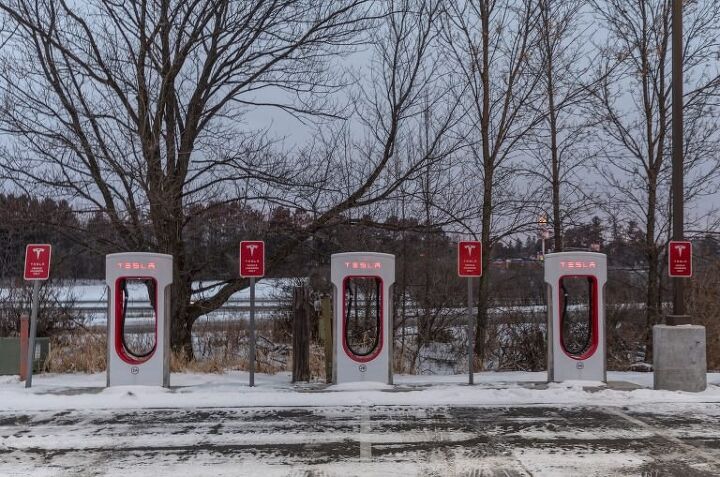Debate Heats Up: Car Dealers Vs. Electric Vehicle Mandates

Table of Contents
Car Dealers' Concerns Regarding Electric Vehicle Mandates
The implementation of electric vehicle mandates presents significant challenges for car dealerships, impacting their operations and profitability in several key ways.
Impact on Inventory and Profit Margins
Shifting to EV sales requires a substantial investment for dealerships. This includes upgrading infrastructure to handle EV charging and maintenance, retraining staff on EV technology, and managing a new type of inventory. The transition also presents a financial hurdle: profit margins on EVs are currently lower than on traditional gasoline-powered vehicles, impacting revenue streams.
- Increased training costs for staff: Dealers need to invest in comprehensive training programs to equip their staff with the necessary skills to sell and service EVs.
- Need for specialized EV repair equipment: Maintaining EVs requires specialized tools and equipment, representing a significant capital expenditure for dealerships.
- Higher initial investment in EV inventory: Dealerships need to invest in a new inventory of EVs, which can be costly, especially given the current higher upfront prices compared to internal combustion engine (ICE) vehicles.
- Potential for reduced sales volume due to consumer hesitancy: Consumer adoption of EVs, while growing, is still slower than some mandates anticipate, potentially leading to unsold inventory and reduced revenue.
Challenges in EV Sales and Consumer Education
Many dealerships currently lack the expertise and infrastructure necessary to effectively sell and service EVs. Furthermore, educating consumers about the benefits, practicalities, and nuances of EV ownership remains a significant challenge.
- Lack of consumer awareness about EV benefits: Many potential buyers remain unsure about the advantages of EVs, including range, charging times, and overall cost of ownership.
- Range anxiety and charging infrastructure concerns: Concerns about limited range and the availability of public charging stations are major barriers to EV adoption.
- Complexity of EV financing options: Understanding EV-specific financing options, including government incentives and tax credits, can be confusing for consumers.
- Need for robust consumer education programs: Dealerships need support in developing and delivering effective consumer education programs to address these concerns.
Concerns about Government Regulations and Support
Dealerships are concerned about the pace and practicality of EV mandates, feeling that insufficient support is provided for the transition. The lack of clarity regarding future government policies and incentives creates uncertainty and instability.
- Need for clear and consistent government policies: Dealers need predictable and stable government policies to plan investments and adapt to the changing market.
- Lack of sufficient incentives for both dealers and consumers: More robust incentives are needed to encourage both dealers to stock EVs and consumers to purchase them.
- Concerns about potential government overreach: Dealerships are worried about excessive regulation that could hinder their ability to operate efficiently.
- Desire for more predictable market conditions: Stable and predictable market conditions are vital for dealerships to make sound financial decisions and plan for the future.
Arguments in Favor of Electric Vehicle Mandates
Proponents of electric vehicle mandates highlight the substantial environmental, economic, and technological benefits of accelerating the transition to electric transportation.
Environmental Benefits and Public Health
EVs offer significant environmental advantages compared to gasoline-powered vehicles. By reducing greenhouse gas emissions and improving air quality, they contribute to a healthier environment and mitigate the effects of climate change.
- Reduced carbon footprint: EVs produce zero tailpipe emissions, significantly reducing greenhouse gas emissions.
- Improved air quality in urban areas: Reduced air pollution leads to improved public health, particularly in densely populated areas.
- Contribution to global climate change mitigation: The widespread adoption of EVs is crucial in addressing climate change and its associated risks.
- Public health benefits from reduced air pollution: Cleaner air results in fewer respiratory illnesses and other health problems.
Energy Security and Economic Growth
Reducing dependence on foreign oil enhances national energy security, while the EV industry itself creates numerous high-paying jobs across various sectors.
- Increased energy independence: A transition to EVs reduces reliance on imported oil, strengthening energy security.
- Stimulation of domestic job creation: The EV industry creates jobs in manufacturing, technology, infrastructure, and related fields.
- Growth in related technological sectors: The EV industry fosters innovation and growth in associated sectors, such as battery technology and renewable energy.
- Attraction of foreign investment: A commitment to EVs can attract significant foreign investment in the automotive and related industries.
Technological Advancement and Innovation
Mandates incentivize innovation and accelerate the development of more efficient, affordable, and technologically advanced EVs. Competition is spurred, leading to better technology and lower prices for consumers.
- Faster development of battery technology: Mandates drive investment in research and development of better, more efficient, and longer-lasting batteries.
- Improvements in charging infrastructure: The need for widespread EV adoption necessitates the development of robust and convenient charging infrastructure.
- Increased vehicle range and performance: Competition and technological advancements lead to improvements in EV range and performance.
- Lower prices for consumers: Increased competition and economies of scale drive down the cost of EVs, making them more accessible to consumers.
Conclusion
The debate surrounding electric vehicle mandates is complex, pitting the immediate concerns of car dealerships against the long-term benefits for the environment and the economy. While car dealers raise valid points about the challenges of adapting to the EV market, the environmental and economic advantages of transitioning to electric transportation are undeniable. Finding a balance that supports both the dealers' adaptation and the rapid adoption of electric vehicles is crucial. This requires a collaborative approach between policymakers, auto manufacturers, and dealerships to create a supportive environment for the transition. Ultimately, navigating the complexities surrounding electric vehicle mandates is vital for a sustainable and prosperous future for the automotive industry. Let's continue the dialogue on effective strategies for successful electric vehicle mandate implementation and explore alternative approaches to achieve the same environmental and economic goals.

Featured Posts
-
 The Crawford Canelo Debate Benavidezs Exclusion Disrespect Or Skill Based Decision
May 04, 2025
The Crawford Canelo Debate Benavidezs Exclusion Disrespect Or Skill Based Decision
May 04, 2025 -
 Ajagba Vs Bakole Increased Training Intensity
May 04, 2025
Ajagba Vs Bakole Increased Training Intensity
May 04, 2025 -
 Ny Nj Ct Snow Forecast Predicting The Next Winter Storm
May 04, 2025
Ny Nj Ct Snow Forecast Predicting The Next Winter Storm
May 04, 2025 -
 Gigi Hadid Shares Unseen Details About Bradley Cooper
May 04, 2025
Gigi Hadid Shares Unseen Details About Bradley Cooper
May 04, 2025 -
 Ufc 314 Volkanovski Lopes Fight Early Betting Odds And Predictions
May 04, 2025
Ufc 314 Volkanovski Lopes Fight Early Betting Odds And Predictions
May 04, 2025
